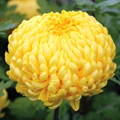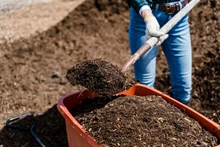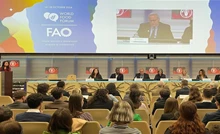
IARI has also contributed for human resource development and has played a key role in the establishment of (a) Afghanistan National Agricultural Sciences and Technology University (ANASTU), Kandahar, Afghanistan; and (b) Advanced Centre for Agricultural Research and Education (ACARE), Yezin Agricultural University, Myanmar.
The 61st convocation of IARI, New Delhi will be organized tomorrow in the Bharat Ratna Shri C Subramanium Hall of NASC complex. The Vice President of India, Jagdeep Dhankhar, will be the chief guest of the convocation. Union Minster of Agriculture and Farmers Welfare, Narendra Singh Tomar, Minister of State, Ministry of Agriculture and Farmers Welfare, Kailash Chaudhary and Shobha Karandlaje, Minister of State for Agriculture and Farmers Welfare will be the guest of Honour during the event.
Dr. Himanshu Pathak, Secretary DARE and Director General, ICAR; Dr. A. K. Singh, Director; Dr. Anupama Singh, Dean and Joint Director (Education); Dr. Viswanathan Chinnusamy, Joint Director (Research); Dr. Rabindranath Padaria, Joint Director (Extension), ICAR-IARI will also grace the occasion. During the convocation, around 402 students will receive their degrees including foreign students from several countries. On this occasion, the merit medals will be presented to the PG students.
IARI has added a new chapter to its glorious past by opening up its door to the undergraduate teaching. Under the New Education Policy, the first batch of 306 undergraduate students at IARI and outreach centres in various programs have been initiated. The students have been admitted to B.Sc. (Hons.) Agriculture at IARI New Delhi, IARI Jharkhand and IARI Assam. IARI also started UG programmes for the B.Tech. (Agril. Engineering), B. Tech (Biotechnology), and B.Sc. (Hons.) Community Science at IARI in collaboration with its sister institutes.
During the convocation, Vice President of India will release different varieties of cereals, fruits and vegetables. This year, 16 varieties/hybrids in field crops were developed through an integrated approach of conventional and genomics-assisted breeding. In wheat, 10 varieties were released including HD 3406 and HD 3407, which are MAS-derived varieties having resistance to leaf stem- and stripe- rusts. Besides, HD 3411 developed through MAS was released for timely sown irrigated conditions. Further, HD 3369, HI 1650 (Pusa Ojaswi), HI 1653 (Pusa Jagrati), HI 1654 (Pusa Aditi), HI 1655 (Pusa Harsha), HI 8826 (Pusa Poshtik) and HI 8830 (Pusa Kirti) have been developed for various agro-ecologies.
During this year, IARI developed two herbicide (Imazethapyr) tolerant rice varieties i.e., Pusa Basmati 1979 and Pusa Basmati 1985. Due to the inbuilt herbicide tolerance, these varieties are suitable for DSR cultivation in North-Indian plains. Pusa Basmati 1121, Pusa Basmati 1718, Pusa Basmati 6 and Pusa Basmati 1509 occupied >95% of the Basmati rice area in the country and contributed Rs. 34,000 crores of foreign exchange during 2022-23.
In chickpea, Pusa JG-16 - a drought-tolerant variety developed through MAS was released for drylands. Further, Pusa Mustard-34 - a single zero high-yielding variety with low erucic acid (0.79%) has also been released. In this ‘International Year of Millets’, institute’s major focus is on the development of biofortified pearl millet cultivars for providing nutritional security. Four biofortified pearl millet lines viz., PPMI 1280, PPMI 1281, PPMI 1283 and PPMI 1284 (with high iron and zinc content) were developed.
In Horticultural crops, two varieties of Rose (Pusa Lakshmi and Pusa Bhargava); Marigold (Pusa Parv and Pusa Utsav); Gladiolus (Pusa Rajat); Chrysanthemum (Pusa Lohit) and Bougainvillea (Pusa Akansha) were identified. Two soft-seeded Guava varieties, Pusa Aarushi and Pusa Pratiksha with red and white pulp, respectively have been developed. A gynodioecious, semi-dwarf papaya variety Pusa Peet has been released.
High-yielding vegetable varieties namely Pusa Krishna of brinjal for Madhya Pradesh and Maharashtra and Pusa Prateek of carrot for Rajasthan, Gujarat, Haryana, Delhi, Karnataka, Tamil Nadu, Kerala and Puducherry have been identified. Besides these, tomato hybrid ToLCV-6, resistant to Tomato Delhi Leaf Curl Virus with yield potential of 70 t/ha has been identified. A hybrid of red cabbage, Pusa Red Cabbage Hybrid-1, has been developed. Similarly, one variety each of cauliflower (Pusa Snowball Hybrid-2) and capsicum (Pusa Capsicum- 1) have been released.
Integrated farming system model which includes Crop + Dairy + Fishery + Poultry + Duckery + Apiary + Boundary Plantation + Biogas unit + Vermicompost resulted in high system productivity and profits as compared to the conventional rice-wheat system. From this system, in addition to significant employment generation, a net return of Rs. 4.2 lakh per hectare per annum is obtained.
The Institute has initiated studies on Zero budget Natural Farming (ZBNF) and long-term studies are underway for further validation of this technology. The microbial technology of PUSA Decomposer, an environment-friendly solution for management of paddy straw/stubbles, has been licensed to 24 private firms.
On-site diagnosis kit for the pathogen detection for Chilli leaf curl virus and bakanae disease were developed. IARI technologies are disseminated through its outreach extension programmes implemented at different locations of the country, using innovative approaches. All demonstrated varieties of IARI resulted in significantly higher yield, in comparison to the local varieties at all the trial locations.
Pusa Samachar, a weekly programme started by IARI on Youtube, to disseminate the IARI technologies has been receiving a lot of appreciation from the farmers, where-in the latest technologies and season-wise advisories are communicated to the farmers and other stakeholders, in Hindi and other regional languages like Telugu, Kannada, Tamil, Bangla and Oriya.
A dedicated Pusa WhatsApp number (9560297502) has been launched for farmers’ queries regarding their problems related to agriculture are invited and addressed promptly by the team of experts.











